How can the countries of South Asia better cooperate in the planning and response to natural disasters? This was the topic of a workshop held April 22-28 in Cambridge, Mass. The Asia-Pacific Center for Security Studies (APCSS), in collaboration with the Near East South Asia Center for Strategic Studies (NESA) and the Harvard Kennedy School (HKS) of Government hosted the weeklong workshop on ‘U.S.-South Asia Leader Engagement Program’ at Harvard University.
This workshop, the second in a series, expanded participation beyond the initial Afghanistan-Pakistan-India -U.S. participants of a May 2011 workshop which concentrated on the security dynamics among them. It brought together government officials and professionals from the U.S. and South Asian Association for Regional Cooperation (SAARC) countries as well as Bangladesh, Sri Lanka, and Maldives to consider integrated approaches to response to regional disaster. It focused on integrated, comprehensive approaches that involve multiple agencies and civil society and address not only responses to disasters, but collaboration in prevention, preparation and recovery.
It was attended by 40 security cooperation practitioners and subject matter experts, 14 of which were APCSS alumni. According APCSS Director Lt. Gen. (Ret.) Dan Leaf this workshop “leveraged our faculty expertise and our network of fellowship to address a topic of great interest in Asia-Pacific.”
The week began with a series of interactive lectures on the Framework for Risk Management and Routine Crisis Emergencies from Harvard’s Dr. Herman “Dutch” Leonard. These were complemented with a host of presentations by high level officials who had important experience to share in Disaster Management Cooperation. They included: Amb. Nick Burns, former Under Secretary of State for Policy, who provided an overarching perspective of political dynamics in the region; Mr. James Schear, Deputy Assistant Secretary of Defense (Policy – Partnership Strategy) who presented on U.S. DoD Support to South Asia Disaster Response; Adm. (ret.) Patrick Walsh, former Commander Pacific Fleet, on his experience as the Commander for U.S. military support to the Japan Earthquake, Tsunami, and Nuclear disaster response effort; and, Ms. Juliette Kayyem, former Assistant Secretary of Intergovernmental Relations for the Department of Homeland Security during the Gulf oil spill and now a journalist for Boston Globe and a Harvard lecturer, looked at the politics of a crisis “event” thru the lens of her experience in BP Oil leak crisis.
Captain Jim McPherson, former US Coast Guard spokesman during the Gulf Oil Spill, discussed dealing with the media in crisis. Complementing his presentation was on the evolving effects of social media in emergency/crisis situations by Molly McPherson, a public relations consultant
Other presentations included: Operationalizing Regional Response by Phil Mead, Center of Excellence; Operational Considerations and Lessons Learned by Bill Berger of USAID Director for Asia; and NGO Role in Disaster Management by Jean Hacken (IRD).
The presentations enabled participants to work throughout the week in small groups to apply their lessons within the South Asian context using a series of regional scenarios to guide deliberations and tease out critical insights. Each day the small groups briefed their plenary colleagues on the results of their work and received critical feedback. Recommendations for action were collated throughout the week and refined at workshop’s end by a nominated conference group and thereafter validated by the plenary.
The Workshop recommendations largely centered around the need for SAARC to be appropriately invigorated to be able to fulfill a coordination role especially in crises that have widespread cross-border impacts. Participants throughout the week remarked on the value they placed on the event: “The workshop built trust and confidence in working with each other in future disaster responses.”
One senior participant remarked to the plenary at the end of the workshop that South Asia in its evolution from national self reliance to globalization had bypassed an important and vital step – the invigorating of regional institutions and relationships. Disaster Management, he remarked, is an area where such relationship and institution building had great promise.
Based on the success of this program, APCSS, NESA and the Kennedy School continue discussions to cooperate in future offering such seminars annually, on strategic issues of significance.
-END-
EDITED 5/4/2012


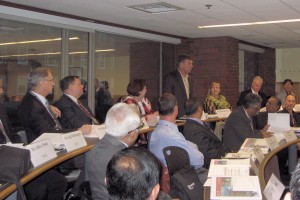
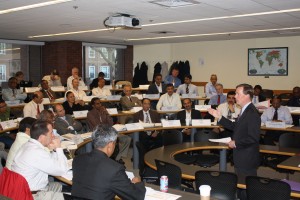
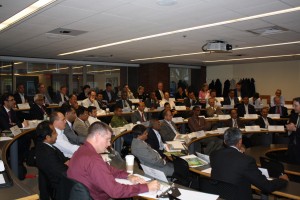
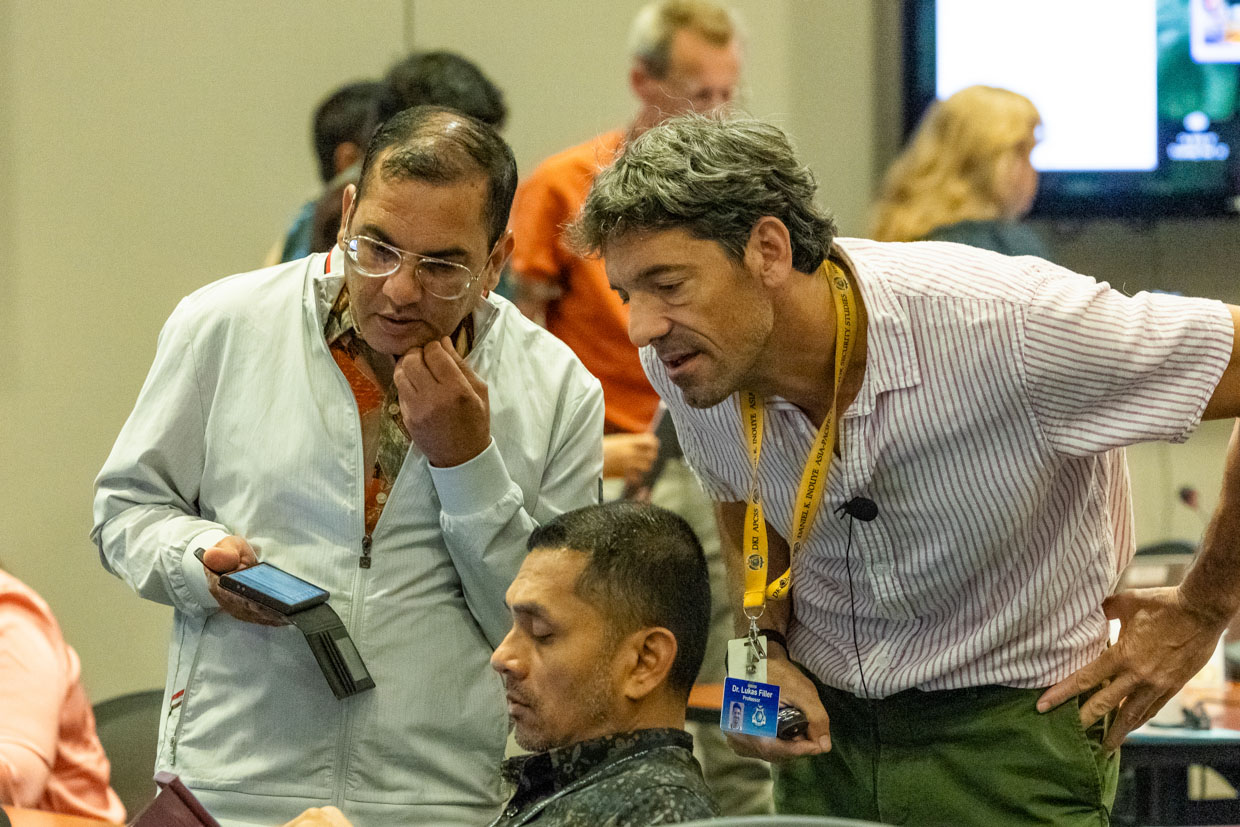
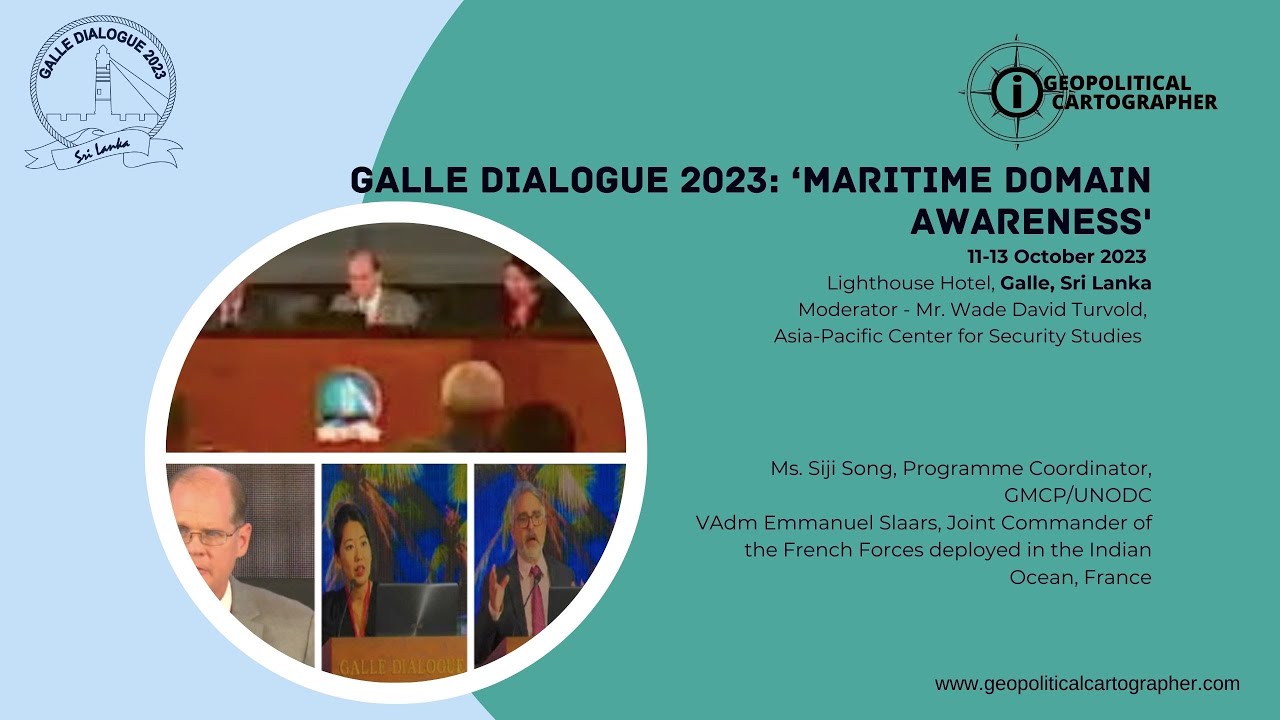
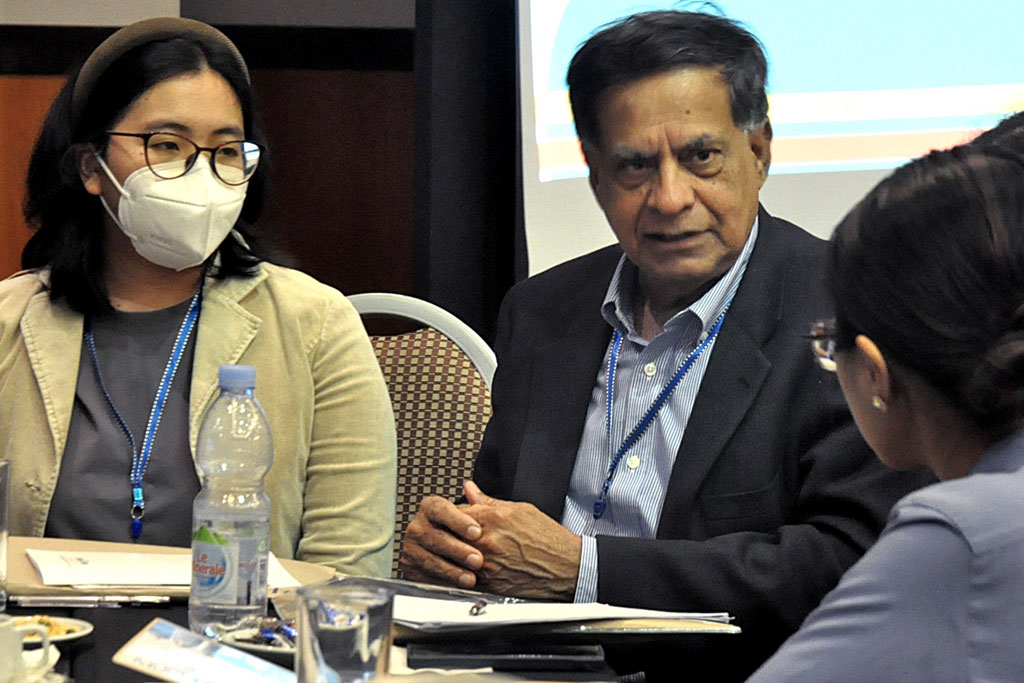




APCSS along with other organizers deserves an applause for arranging such a conference for South Asian regional cooperation on disaster response. I deeply acknowledge that while living so much away you are worried for this part of the planet for greater interest of the humanity.
May I request you, that next time you should invite persons like me who have contributed in Earthquake Reconstruction and Rehabilitation Authority as director ; the first hand experience of raising DISASTER MANAGEMENT ORG after EQ 2005 in Pakistan.Sharing is really caring for any future disasters
It’s a brilliant idea.Having served in Bangladesh Army for long 32 years and taking part in different diaster response operation including ” Operation Sea Angel ” led by Gen Stakepole,i have realised that a developing country with inhouse resources can never be able to handle a natural disaster effectively.Apart from logistic,goverence and corruption are also the main issues for not being able to address adquately.Therefore while planning,these must also be taken into consideration.Another aspect is Civil-Military relationship of a particular country needs to be studied throughly so that when such support is needed, you carry out the mision through Civil administration or Armed forces or NGO’s.Mind you-Poor are hit hardest.